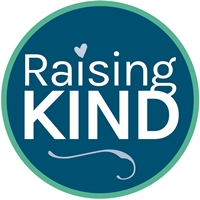what to say to a child if you see a homeless person
I take the well-nigh delightful childhood memories of visiting my grandparents in Bombay, India. I would eagerly anticipate those trips and the delicious chaos a world apart from my quiet dwelling in Singapore.
 But I too vividly recall how distressed I was by the visible poverty whenever I visited India. I remember crying when I saw children and families living on the street, sometimes sobbing through entire auto journeys. When I demanded answers from my mom — Why is this happening and what can nosotros do? — she, and other relatives, had none. To this day, those trips remain tainted by the sadness of never tackling this subject with those I virtually loved.
But I too vividly recall how distressed I was by the visible poverty whenever I visited India. I remember crying when I saw children and families living on the street, sometimes sobbing through entire auto journeys. When I demanded answers from my mom — Why is this happening and what can nosotros do? — she, and other relatives, had none. To this day, those trips remain tainted by the sadness of never tackling this subject with those I virtually loved.
In hindsight, I don't blame my family for their hesitation, simply I do wish we had had the correct words to talk almost it. Now, decades subsequently as I heighten a young son in Seattle, I'thousand determined to approach it head on.
Homelessness here is in a country of emergency. King County's almanac tally of those living on the streets numbered upwardly of 11,000 people, a 21 percent bound from 2016; according to The Seattle Times, a whopping forty,000 Washington students were homeless during the 2015-2016 schoolhouse twelvemonth.
There's a heartbreakingly high chance our children will encounter a homeless person — not simply as an developed living on the street, simply perhaps a friend at schoolhouse. Then how can parents talk to their kids effectively?
Don't perpetuate stereotypes
What you don't say is every bit important equally what you do say, especially when talking to young children, says Lisa Gustaveson, a homelessness abet with close to two decades of advocacy experience in Seattle. "There is a perception that people who look poor are dangerous and as parents, we sometimes unknowingly perpetuate that destructive stereotype," she says.
Steer away from using words that indicate danger, dirtiness or other negative emotions. Instead, be directly and discuss the underlying problems that cause and perpetuate homelessness.
"From a young age, I introduced my girl to people who were living homeless or those who had been homeless in the past," she says. "I fabricated sure she understood the reasons someone would lose their housing and what it takes to live homeless. This helped her to sympathize the complexity of the problem and be more than empathetic towards people in need."
Starting time the conversation young
Seattle parent of 3 Asia Megal was surprised how young her children were when they started asking almost homelessness: "In one case when I was out driving with [my 8-year-old son], he saw a homeless person on the street and said 'He looks and so sad and scared. I would do anything to see a light on that person'due south face.'" Megal was surprised by the depth of his words.
Upon probing, she learned his classmate was living in a car and had shared it in secret with her son.
Megal suggests starting the conversation naturally, for example, when you run across a homeless person while out with your child. "Ask questions like 'What did you encounter?' and 'exercise you have any questions I could respond?"
She adds: "Children know more than we give them credit for."
Come up from a place of empathy, not pity
Gustaveson recommends building compassion into the word. "I talked to my daughter about how difficult information technology must exist for that person to stand on the corner with a sign asking for help," she says. "Fifty-fifty young children tin feel empathy and should be given an outlet for expressing how they feel when they see someone who is request for assist."
Gustaveson likewise recommends prompting your children to empathize with the state of affairs: "I would enquire her what she thinks the person is feeling and how nosotros might be able to help."
Help when y'all tin
Nigh importantly, communicate how you lot could take action together. Some common ways include raising coin for a nonprofit with younger ones or volunteering with older children (ane local resource: The Project for Family unit Homelessness from Seattle Academy).
Other times, the action is more than spur-of-the-moment. Gustaveson, for example one time rolled down her car window to requite a dollar to a adult female while her daughter was in the car. When they got to talking, Lisa learned they had the same proper name; the adult female mentioned she lived exterior and didn't have a tarp to put under her at night.
"When we collection away, my girl asked if we could get her [a tarp]," says Gustaveson. "I was faced with the usual parental state of affairs: Do I stay on schedule or do we take the extra time to purchase the things she needed?"
In such moments, Gustaveson recommends beingness honest with your child if it's not the correct time to accept action. And if information technology is, work together to help."This time it worked out and, nosotros spent the afternoon purchasing the tarp and other things she idea Lisa might demand."
Source: https://www.parentmap.com/article/how-talk-kids-homeless-seattle
0 Response to "what to say to a child if you see a homeless person"
Postar um comentário